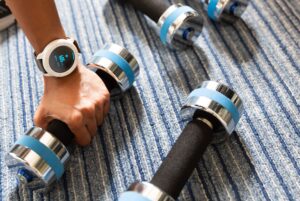Getting older makes it less important to respond to problems and more important to stop them before they happen. Preventive health tests are very important because they help find health problems early, often before they show signs. When cancer is found early, it can be treated sooner, which can improve results, lower costs, and quality of life. Regular screenings can help adults live longer, better lives and be able to do more on their own.
Preventive care is more than just finding diseases. It’s also about giving adults the tools and information they need to stay healthy. The following screenings are important for people over 60, from heart health to bone strength, and should be talked about with a doctor on a daily basis.
Checks for high blood pressure to protect the heart
High blood pressure is often called the “silent killer” because people with it don’t show many signs but are much more likely to have a heart attack, stroke, or kidney disease. Blood pressure checks should be done on a regular basis to keep an eye on heart health and catch any changes before they become dangerous. It should be checked at least once a year, or more often if it has been high in the past, according to most doctors.
Checking cholesterol levels to avoid heart disease
Screening for cholesterol can help figure out how likely you are to get heart disease or a stroke. It is normal for cholesterol values to rise with age, especially LDL (bad) cholesterol. A simple blood test every four to six years, or more often if you have risk factors, can help you figure out if you need to make changes to your lifestyle or take medicine. Keeping your cholesterol levels in a healthy range lowers your chance of heart clots and the problems that come with them.
Checking for Diabetes and High Blood Sugar
Type 2 diabetes is more common as people get older, and it can happen without any obvious signs. A blood glucose or A1C test can find prediabetes or diabetes early, so changes can be made to the person’s lifestyle and they can get care to avoid problems like nerve damage, eye loss, or kidney disease. People who are overweight or who have a family history of diabetes should get screened once a year.
Checkups for colon cancer
Colorectal cancer is the second most common type of cancer that kills people, but it’s also one of the easiest to avoid by getting checked for early signs. Regular checks for seniors should start at age 45 and go on until at least age 75, based on their overall health and risk factors. You can get a colonoscopy every 10 years, a stool test once a year, or another way suggested by your doctor. Early diagnosis can make treatment much more likely to work.
Women Should Get Screened for Breast Cancer
Mammograms are still one of the best ways to find breast cancer early. Screenings should be done every two years for women ages 50 to 74, but this can change based on personal and family background. Mammography has been shown to greatly lower the risk of dying from breast cancer when it is used early.
Men should get screened for prostate cancer
Blood tests that look for prostate-specific antigen (PSA) can help find prostate cancer early. Men between the ages of 55 and 69 should talk to their doctor about the risks and benefits of regular screening. Personal risk factors, such as age, race, and family background, should be used to decide who should be screened.
Checks for osteoporosis based on bone density
Osteoporosis makes bones weak and brittle, and it’s most common in older people, especially women who have gone through menopause. Bone density scans, also called DEXA scans, help figure out how likely someone is to break a bone and whether they need treatment or changes to their food. Women over 65 and men over 70 should usually get screened, but people who smoke, have a family history of the disease, or have used steroids for a long time should get screened earlier.
Eye and Vision Checks
Eye health usually gets worse with age, which can lead to problems like glaucoma, cataracts, and macular degeneration. Vision checks and extended eye tests should be done once a year to find problems that could make daily life hard or even cause blindness. For long-term diseases like diabetic retinopathy, early detection means more treatment choices and better results.
To keep communicating, hearing tests
It’s normal to lose your hearing with age, which can make it harder to make friends, stay safe, and feel good mentally. Seniors should get regular hearing tests to see if their hearing is getting worse. Hearing aids and other aids can make a big difference in quality of life, keeping people independent and lowering their risk of becoming depressed or alone.
Checks for skin cancer
Long-term sun contact makes skin cancer, like melanoma, more likely as you get older. A dermatologist should check a senior’s face once a year, and the senior should also do regular self-checks. Check for new moles, changes to spots that are already there, or any changes in the texture or color of your skin. Finding skin problems early on makes treatment more likely to work.
Screening for cognitive function
Memory loss is not a normal part of getting older, and you should take care of any early signs of cognitive decline. Testing for mental health problems like Alzheimer’s or other forms of dementia early on can help find these problems. During regular checkups, these tests may include easy ones like remembering or problem-solving. It’s easier to plan, get help, and maybe even try treatments early on, which can slow the disease’s development.
Immunizations and Vaccines for Prevention
Not only are vaccines good for kids, they’re also very important for keeping seniors healthy. Older people should get a flu shot every year, a shingles shot every two years after age 50, and a pneumococcal vaccine every four years to protect against getting pneumonia. Also, COVID-19 boosts are important, especially for people whose immune systems aren’t working as well. Up-to-date on shots helps keep older people from getting dangerous illnesses and cuts down on hospital stays.
Dental checkups and good oral health
People often forget about their oral health, but it’s very important to their general health. Gum disease, losing teeth, and mouth diseases can make it harder to eat right and raise your chance of heart disease. Seniors should try to go to the dentist at least once a year, even if they don’t have any teeth or wear dentures. Problems can be stopped before they get worse by getting regular cleanings and checks.
Personalized screening based on each person’s risk
Not every senior needs every test. Decisions about screening should be based on family history, habits, long-term conditions, and personal health goals. Based on your specific needs, a doctor or nurse can help you decide which tests are the most important. The goal is not to get tests that aren’t necessary, but to make sure that you get the tests that are most important for your health.
Avoiding problems is the best way to treat them
One of the best ways to avoid major health problems as you age is to get screen regularly. They give you peace of mind, help you get a report quickly, and chances to change your lifestyle before problems happen. Seniors can stay independent, full of energy, and enjoying life for many years to come by staying aware and working closely with their healthcare workers. Getting regular checkups is really an investment in your health and happiness in the future.




